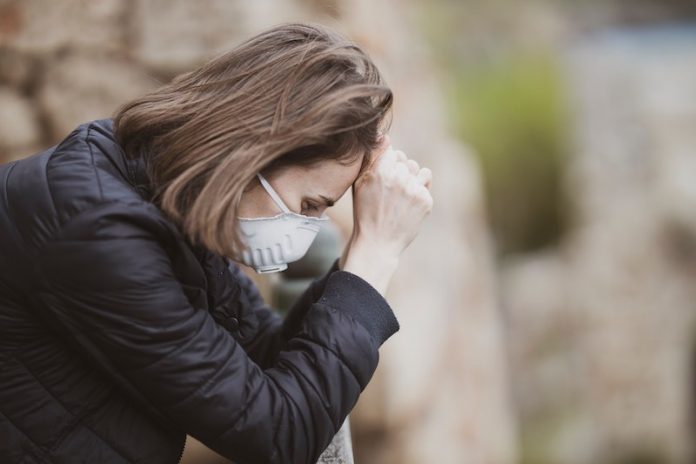
In a new study from the UK and elsewhere, researchers found people who were hospitalized with COVID-19 and continued to experience symptoms at five months show limited further recovery one year after hospital discharge.
This has also confirmed earlier research that people who were less likely to make a full recovery from COVID-19 were female, obese, and required invasive mechanical ventilation to support their breathing during their hospital stay.
In the study, the team assessed 2,230 adults who had been hospitalized with COVID-19. All participants completed a five-month assessment. So far, 807 people have completed both the five-month and 12-month assessments.
Recovery was measured using patient-reported data, physical performance and organ function tests.
Participant blood samples at the five-month visit were analyzed for around 300 substances linked to inflammation and immunity.
The team found that one year after hospital discharge, less than three in 10 patients on the study reported they felt fully recovered, largely unchanged from 2.5 in 10 at five months. The most common ongoing symptoms were:
- fatigue
- muscle pain
- physically slowing down
- poor sleep
- breathlessness
Participants felt their health-related quality of life remained substantially worse one year after hospital discharge, compared to pre-COVID.
This suggests the physical and mental health impairments reported in the study are unlikely to be pre-existing conditions.
The team also found the number of persistent symptoms was much higher in the ‘very severe’ group compared to the ‘mild’ group.
There was little improvement in physical and mental health from the five-month to one-year assessments.
The researchers then identified higher levels of substances associated with whole-body inflammation and molecules linked to tissue damage and repair, in participants with very severe-long COVID compared to mild.
They also found a pattern of substances linked to poor cognition in the cluster of patients reporting symptoms such as ‘brain fog’ or slowed thinking, suggesting possible neuro-inflammation.
These findings suggest that people who were hospitalized and went on to develop long-COVID are not getting substantially better a year after they were discharged from hospital.
They urgently need healthcare packages and medicines that target the potentially treatable traits of long-COVID. Without these, long-COVID has the potential to become highly prevalent as a new long-term condition.
If you care about long COVID, please read studies about how Long COVID could harm your immune system, and findings of why some people get ‘long COVID’ while others don’t.
For more information about health, please see recent studies about vitamin K that may lower your heart disease risk by a third, and results showing that people with these mental problems less likely to get COVID-19.
The study is posted on medRxiv. One author of the study is Professor Chris Brightling.
Copyright © 2021 Knowridge Science Report. All rights reserved.



